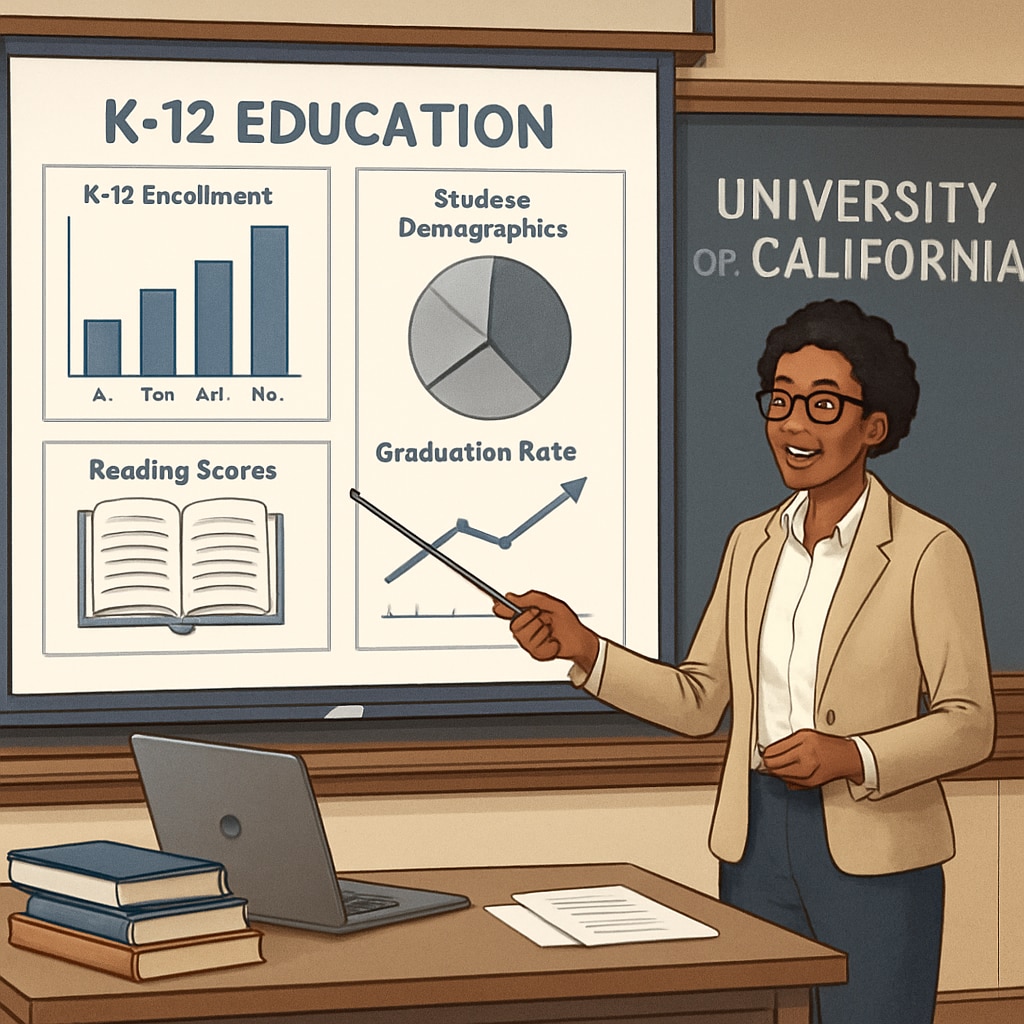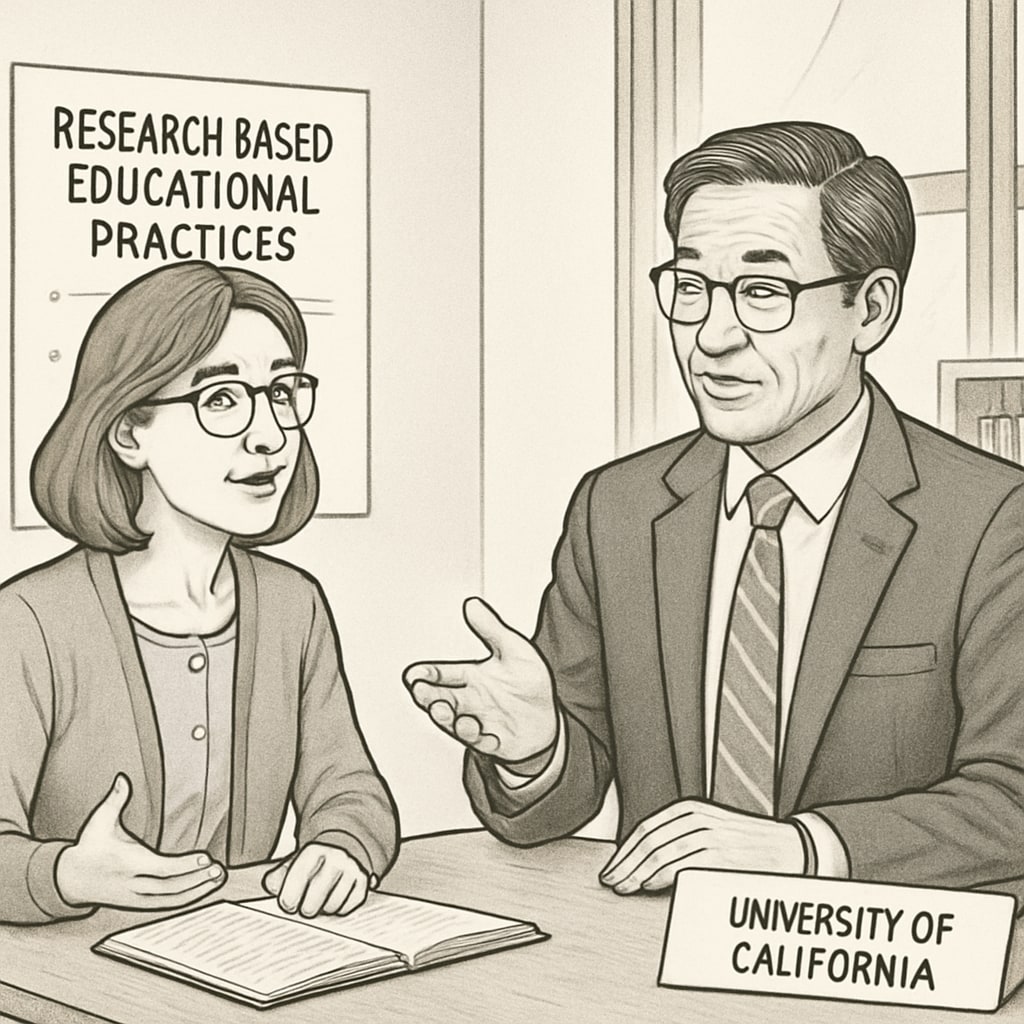Connecting with academic professionals is essential for bridging the gap between cutting-edge research and practical classroom applications. If you’re a K12 educator or parent interested in enhancing educational practices, the University of California (UC) system offers a wealth of resources. By engaging with UC employees—many of whom are experts in education—you can gain valuable insights to transform your approach to teaching and learning.
In this article, we’ll explore how to effectively reach out to UC education experts, craft meaningful questions, and integrate their research into K12 education. These strategies will empower you to create a closer connection between academic advancements and real-world classroom needs.
Why Seek Guidance from UC Education Experts?
The University of California system is renowned for its research and contributions to education. Its faculty and staff include specialists who study pedagogy, curriculum development, and student outcomes. By engaging with these experts, K12 educators and parents can:
- Gain insights into evidence-based teaching practices.
- Learn about emerging trends in education.
- Understand how to address specific challenges in K12 settings.
For example, researchers at UC campuses often publish findings on topics like inclusive education, digital learning tools, and strategies for improving student engagement. Connecting with these professionals allows you to apply their findings directly to your classroom or school district.

How to Reach Out to UC Employees
Establishing a productive connection with UC employees begins with understanding the best ways to contact them. Here are some practical steps:
- Identify the Right Expert: Use the university’s departmental directories or research publications to find faculty members or staff who specialize in your area of interest.
- Leverage Public Events: Attend public lectures, webinars, or workshops hosted by UC campuses. These events often provide opportunities to meet experts in person or virtually.
- Utilize Email Effectively: When reaching out via email, keep your message concise, professional, and specific. Mention your role as an educator or parent and explain how their expertise aligns with your needs.
- Engage Through Social Media: Follow UC departments and researchers on platforms like Twitter or LinkedIn. These channels often serve as informal spaces for academic networking.
Remember, most UC employees are passionate about sharing their knowledge, so don’t hesitate to reach out respectfully. For additional guidance, you can explore resources like the University of California’s Wikipedia page to learn more about their academic structure.
Crafting Questions for Maximum Impact
Once you’ve established contact, asking the right questions is critical. Here’s how to ensure your queries are impactful:
- Be Specific: Instead of asking broad questions like “How can we improve education?” focus on particular challenges you face, such as “What strategies can foster engagement among middle school students in a hybrid learning environment?”
- Show Familiarity with Their Work: Reference their research or publications to demonstrate genuine interest and preparation.
- Seek Actionable Advice: Frame questions that encourage practical responses, such as “What tools or methods have you found effective for integrating technology in K12 classrooms?”
By preparing thoughtful questions, you not only show respect for the expert’s time but also increase the likelihood of receiving detailed and useful responses.

Applying Research to K12 Teaching Practices
After gathering insights from UC experts, the next step is implementation. Here’s how to bridge the gap between theory and practice:
- Collaborate with Colleagues: Share the information you’ve gathered with fellow educators and brainstorm ways to adapt it to your specific context.
- Start Small: Test new strategies or tools in a pilot program before scaling up to an entire class or school.
- Evaluate and Adjust: Continuously assess the effectiveness of any new approach and make adjustments as needed.
For example, if a UC researcher has studied the impact of project-based learning on student performance, you might implement this method in one unit and track its impact on engagement and outcomes. Resources like Britannica’s education overview can also provide supplementary context for applying academic findings.
In addition, remember that collaboration doesn’t end with a single interaction. Maintain relationships with UC experts by providing updates on how their advice has influenced your practice, and continue seeking their guidance as new challenges arise.
Conclusion
Engaging with University of California education experts offers a unique opportunity to enhance K12 teaching practices through evidence-based strategies. By reaching out to UC employees, asking insightful questions, and thoughtfully applying their research, educators and parents can create more effective learning environments for students. Start building these valuable connections today, and take a step toward bridging the gap between higher education research and K12 classrooms.
For more information on UC’s contributions to education, explore their official website.


